Books
Books

Saliva
Ricardo aka Johan, Kamilé Krasauskaité and 1 more
Saliva est le résultat d'une résidence collaborative en octobre 2021 à Fructôse, Dunkerque.
Édition de 100 exemplaires.

De Scylla en Charybde
De Scylla en Charybde is a poetic novel wich follows the lives of five mutants in a blurry future. The narration is a pretext to play with the sounds of words, the plasticity of a futurist poetic language.
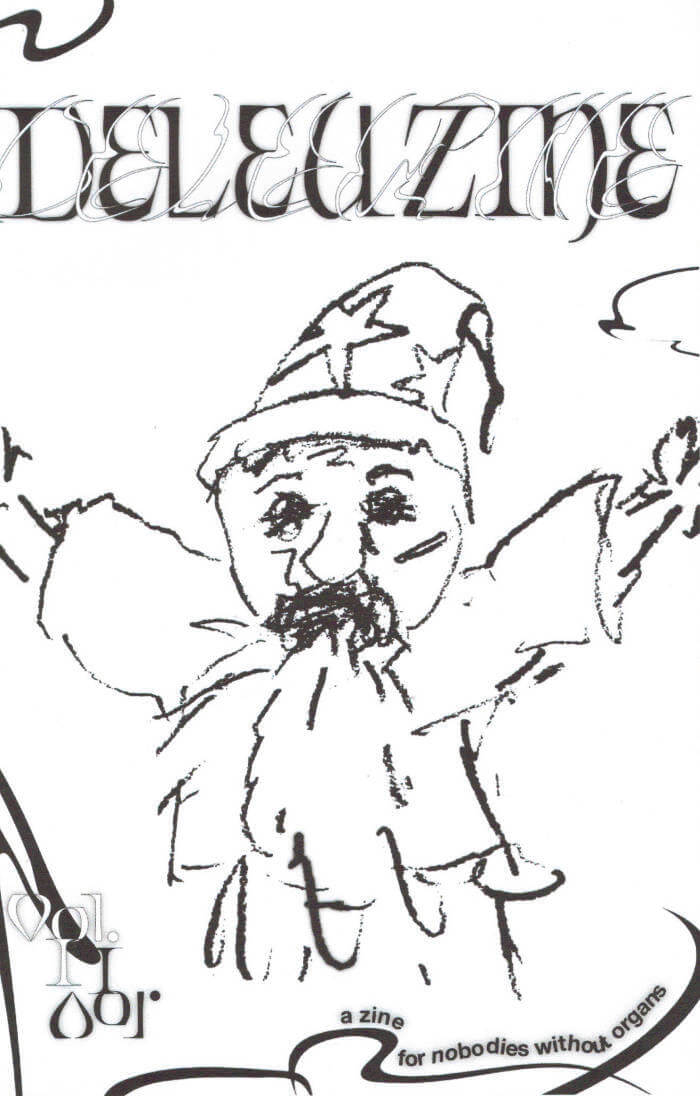
Deleuzine Vol. 1 - Sprouting In All Directions
Deleuzine: A Zine for Nobodies Without Organs is an experimental publication inspired by the writings of French philosopher Gilles Deleuze, as well as figures whose life or work can be said to exemplify aspects of Deleuze’s philosophy of life, including Antonin Artaud, Ezekiel Mphaphele’s Wanderers and Kathy Acker among others. Encompassing the fields of literature, philosophy, ethnography, archaeology, and the arts, the publication aims at a radical exploration (and exploitation) of word, image, and printed matter towards beauty, but also aesthetic and political freedom.
With contributions by: Egle Ambrasaite, Alex Aspden, Edoardo Biscossi, Sabeen Chaudhry, Ruby Conner, Genevieve Costello, Andrew Culp, Anna Luisa Di Lauro, Sophie Fitze, Roxman Gatt, Helena Grande, Rose Higham-Stainton, Sevana Holst, Patrick McAlindon, Geiste Kincinaityte, Michele Muraca, Holly Rowley, Katie Shannon, Natalie Stypa, Katarina Sylvan, Elaine Tam, Haydée Touitou, Samuel White, Romy Day Winkel.
Edited by: Lilly Marks, Sabeen Chaudhry and Holly Rowley.

Curatorial Feelings
Curatorial Feelings is a book that collects arts practitioner Eloise Sweetman’s writing from the past decade — written on the occasion of exhibitions she curated, written on and for individual artworks, as well as for public talks.
Sweetman often wrote while, and not before, the artworks were on view. The time of retrospection, and of being with artworks, imbues her language. Moving between prose and poetry, impressions and reflections, coursing through the writing is a commitment to senses, to subjectivity, to social responsibility.
Sweetman’s writing contributes to a genre of curators’ writing that takes things to heart, that takes things personally. Calling out her ‘curatorial feelings’ juxtaposes and unites the two modes of engagement: as a curator and as a sentient being. Curatorial feelings foreground subjectivity, intuition, senses, and belief systems, while pushing for new art historical narratives and an ethical professionalism

Grounds for Possible Music – On Gender, Voice, Language, and Identity
Gender, voice, language, and identity in musical composition and experimental sound practices.
How do we get to imagine the music we make? Where and how is it grounded? What is the relationship between the art and its maker, and what and who does music represent? Gender, voice, language, and identity are four important notions for musical creation, for the shaping of a canon, and for the interactions in the field. All four notions are strongly contextual and carry an inherent sense of paradigm and otherness. Other and self are defined via orientation and history, expressed via voice, and confirmed in language.
In this publication, these four core notions serve as a set of lenses permitting different perspectives on one another. However much the field of the sounding arts might pretend to be tangential to such affections, they provide important grounds for musical creation.
Some twenty artists have created a variety of outputs—as different in form, strategies, approach, and language, as they are rooted in a variety of sub-fields within the sounding arts.
Contributions by AGF aka Antye Greie, Andrea Parkins, Aurélie Lierman, Bonnie Jones, Cathy Lane, Electric Indigo aka Susanne Kirchmayr, Felicity Ford, Heimo Lattner, Jaume Ferrete Vázquez, Judith Laub, Julia Eckhardt, Marc Matter, Marijs Boulogne, Marion Wasserbauer, Myriam Van Imschoot, Pali Meursault, Peter Westenberg, Richard Scott, Romy Rüegger, Susan McClary, Suzanne Thorpe.

Bee Reaved
A collection of essays from Dodie Bellamy on disenfranchisement, vulgarity, American working class life, aesthetic values, and profound embarrassment.
So. Much. Information. When does one expand? Cut back? Stop researching? When is enough enough? Like Colette's aging courtesan Lea in the Chéri books, I straddle two centuries that are drifting further and further apart.—Dodie Bellamy, “Hoarding as Ecriture”
This new collection of essays, selected by Dodie Bellamy after the death of Kevin Killian, her companion and husband of thirty-three years, circles around loss and abandonment large and small. Bellamy's highly focused selection comprises pieces written over three decades, in which the themes consistent within her work emerge with new force and clarity: disenfranchisement, vulgarity, American working class life, aesthetic values, profound embarrassment. Bellamy writes with shocking, and often hilarious, candor about the experience of turning her literary archive over to the Beinecke Rare Book & Manuscript Library at Yale and about being targeted by an enraged online anti-capitalist stalker. Just as she did in her previous essay collection, When the Sick Rule the World, Bellamy examines aspects of contemporary life with deep intelligence, intimacy, ambivalence, and calm.
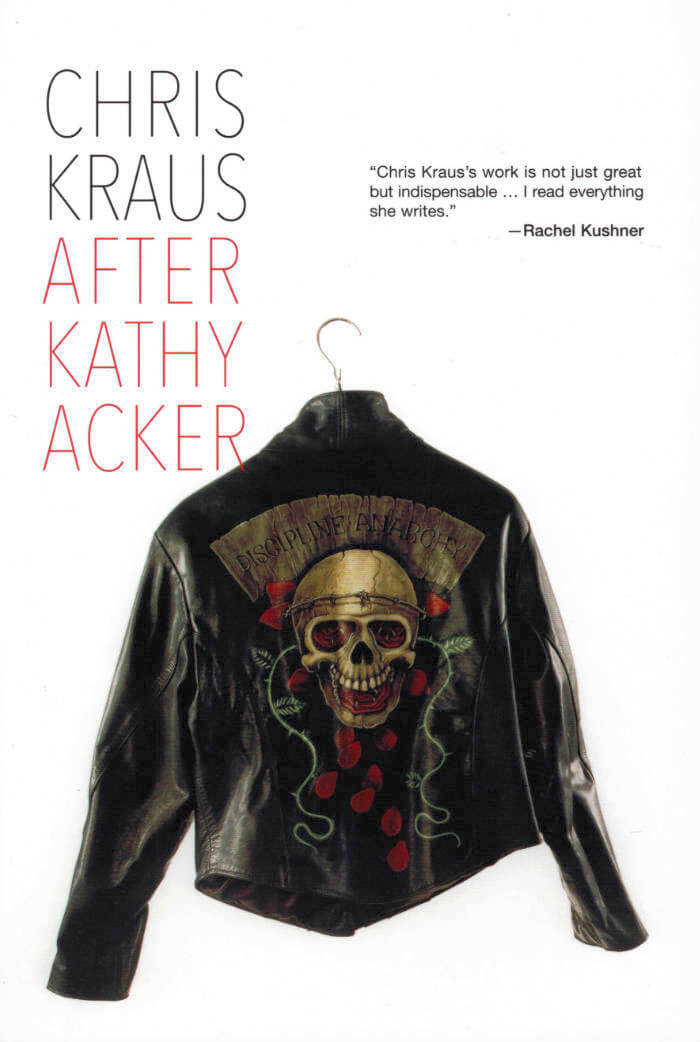
After Kathy Acker
The first authorized biography of postmodernism's literary hero, Kathy Acker.
Acker's life was a fable; and to describe the confusion and love and conflicting agendas behind these memorials would be to sketch an apocryphal allegory of an artistic life in the late twentieth century. It is girls from which stories begin, she wrote in her last notebook. And like other lives, but unlike most fables, it was created through means both within and beyond her control.—from After Kathy Acker
Rich girl, street punk, lost girl and icon… scholar, stripper, victim, and media-whore: The late Kathy Acker's legend and writings are wrapped in mythologies, created mostly by Acker herself. Twenty years after her death, Acker's legend has faded, making her writing more legible.In this first, fully authorized, biography, Chris Kraus approaches Acker both as a writer and as a member of the artistic communities from which she emerged. At once forensic and intimate, After Kathy Acker traces the extreme discipline and literary strategies Acker used to develop her work, and the contradictions she longed to embody. Using exhaustive archival research and ongoing conversations with mutual colleagues and friends, Kraus charts Acker's movement through some of the late twentieth century's most significant artistic enterprises.

Romance Utopia
Romance Utopia is a research project is both a digital archive, a radioshow, a videowork and a collection of essays around notions of romance.

Weird Fucks
A brilliant novella from a legendary figure in American fiction.
A young woman drifts through dimly lit bars and rented rooms, reporting from the erogenous zones of New York and Europe. Encountering increasingly bizarre sexual situations, she turns her curious, comic, and fierce eye onto the contemporary world of sex and desire.
The men of this world evade and simper, they prey, preen, and fall hopelessly in love. In the narrator’s deadpan portraits, we see young women indulging their freedom through hope and disappointment, and young men wearing various guises of masculinity.
This novella surprises with unlikely fucks, disturbing fucks, outlandish fucks, and some truly weird fucks – all written with the smart, elegant, and tough style which could only be that of Lynne Tillman.
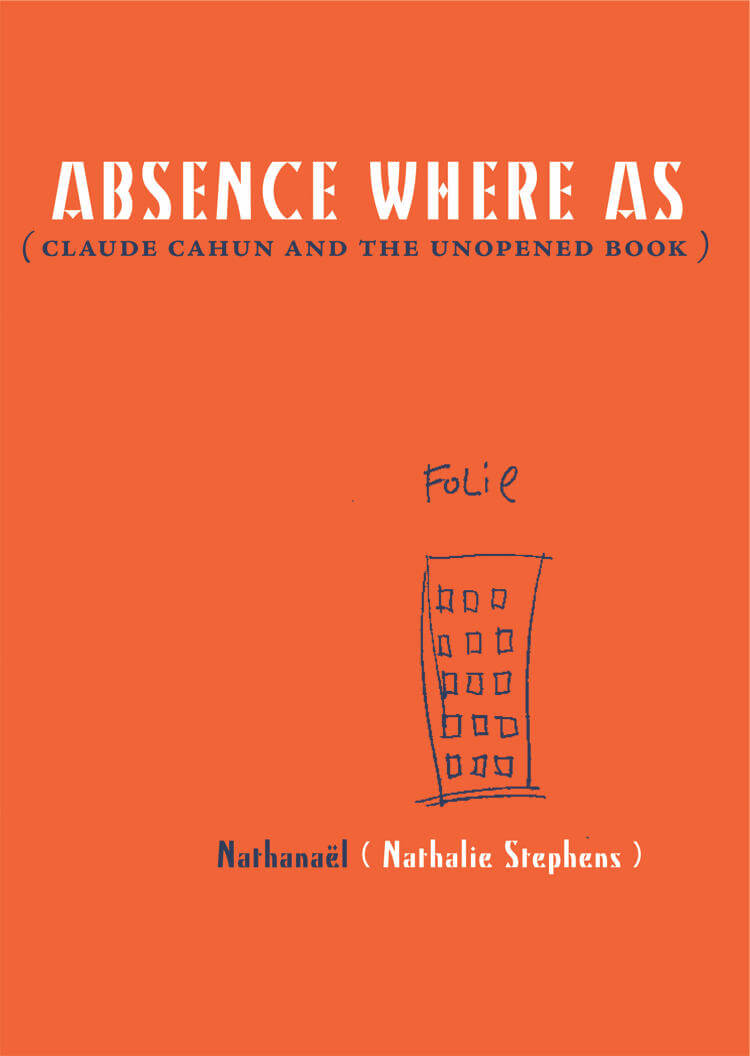
Absence Where As: Claude Cahun and the Unopened Book
This book, from inter-genre, bilingual writer Nathanaël, investigates the relationship between image and language through a philosophical and poetic meditation on a self-portrait by Surrealist photographer and writer Claude Cahun.
"In Absence Where As, Nathanael reads the unread book, ‘the book that comes’ to us nevertheless, that haunts and hovers unopened and dreamt, proceeding from the Ecrits of the visionary and revolutionary artist-activist Claude Cahun, to life’s library. Through this constellatory essay in the faults of thought, in reading’s flaw, Nathanael comes to know and know how, creating new epistemological and aesthetic territory in the radiant continuum between lyric and narrative, the text and the dream of text, which is literature itself." - John Keene

The Letters of Mina Harker
In Dodie Bellamy's imagined "sequel" to Bram Stoker's fin de siècle masterpiece Dracula, Van Helsing's plain Jane secretarial adjunct, Mina Harker, is recast as a sexual, independent woman living in San Francisco in the 1980s. The vampire Mina Harker, who possesses the body of author Dodie Bellamy, confesses the most intimate details of her relationships with four vastly different men through past letters. Simultaneously, a plague is let loose in San Francisco-the plague of AIDS.
Bigger-than-life, half goddess, half Bette Davis, Mina sends letter after letter to friends and co-conspirators, holding her reader captive through a display of illusion and longing. Juggling quivering vulnerability on one hand and gossip on the other, Mina spoofs and consumes and spews back up demented reembodiments of trash media and high theory alike. It's all fodder for her ravenous libido and "a messy ambiguous place where pathology meets pleasure." Sensuous and captivating, The Letters of Mina Harker describes one woman's struggles finding the right words to explain her desires and fears without confining herself to one identity.

WILL YOU MARRY ME?
The ultimate ambition of this book-tool is to “disappear on the street”. Its pages collect words and stories of people whose right to exist and be visible in public spaces was forced to confront the concepts of “legality” and “justice”.
Considering the assumption that the law is a fluid parameter, which changes depending on where we are in the world, the historical period in which we live and the sort of privileges we enjoy, the law defines what is considered moral, licit, in other words, what is right. It distributes power and the perception of power in society, defining, categorizing, dividing and controlling.
WILL YOU MARRY ME? is a public lecture and an artist’s book by Sara Leghissa and Marzia Dalfini, investigating a specific portion of the spectrum of illegality, namely the relationship between illegal acts and public space. It explores how we can act disobedience before everyone’s eyes, suggesting possible forms of complicity and public resistance.
All the content was collected by the artist during meetings and conversations that took place in Prato, Milan, Ramallah, Marseille, Madrid, Nyon and Lausanne and with this book-tool their words become manifestos that the reader is invited to detach and relocate into the public space.
Designed by Marzia Dalfini. Published by NERO with the support of L’Altra.
Format: 42 x 29,7 cm
Pages: 28
Language: IT / EN
Year: 2021
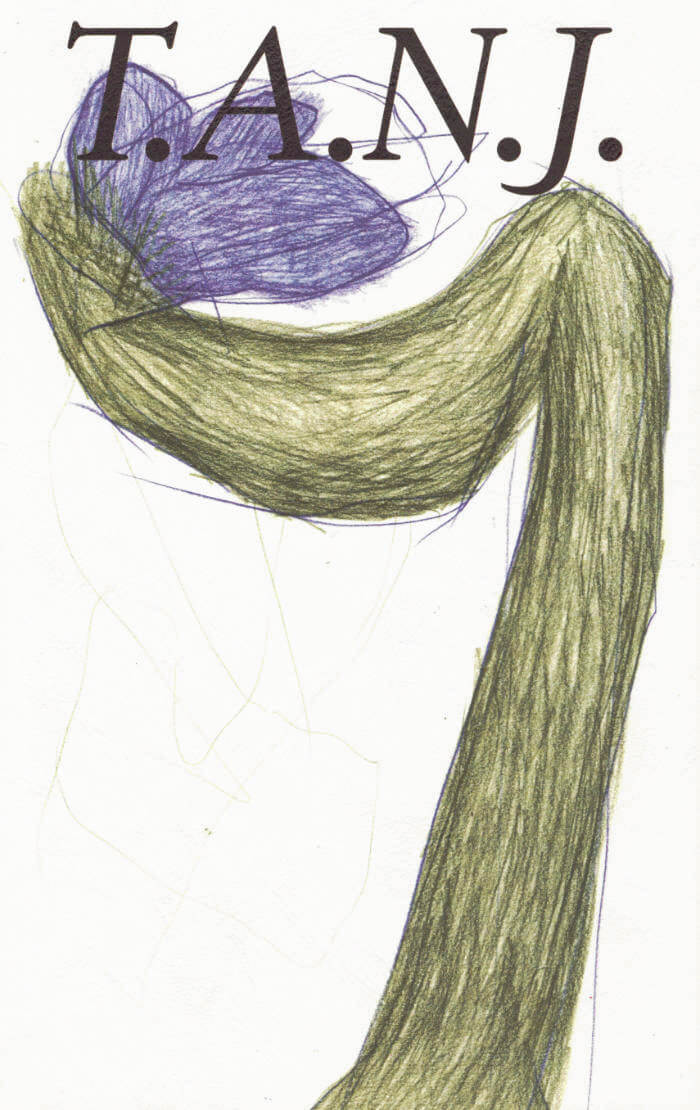
The Against Nature Journal #3
Aimar Arriola, Grégory Castéra
This third issue reviews the many ways in which medicine has pathologized non-procreative sexual desire— those bodies that challenge gender binaries or expose different abilities—while imagining other ways of collectively well-being.
"The issue opens with a commissioned work by visual artists CANDICE LIN and P. STAFF that evokes the central concerns of the journal in subtle and unexpected ways. Lambda Literary Award–winner INDRAPRAMIT DAS speculates on other forms of kinship in a new science-fiction story, while a transnational questionnaire offers insights into the continuous fight for reproductive justice.
We republish a chapter from the autobiography of the late South African, trans, traditional healer NKUNZI ZANDILE NKABINDE, which is introduced by RUTH MORGAN.
We continue to honor the power of poetry with works by ROSA CHÁVEZ and STELLA NYANZI, while celebrating the energy of collective action with a piece by WHAT WOULD AN HIV DOULA DO? In anticipation to his new book on queer desire in the Caribbean, scholar ANDIL GOSINE shares a previous article addressing the notion of “against nature,” while our Columns section brings news from Brazil, India, Kenya, Lebanon, Malaysia, Morocco, and the UK during a season of pandemic fatigue, but also care work, organization, and hope." — the editors

The Essential June Jordan
The Essential June Jordan honors the enduring legacy of a poet fiercely dedicated to building a better world. In this definitive volume, featuring an afterword by Pulitzer Prize-winner Jericho Brown, June Jordan’s generous body of poetry is distilled and curated to represent the very best of her works.
Written over the span of several decades―from Some Changes in 1971 to Last Poems in 2001―Jordan’s poems are at once of their era and tragically current, with subject matter including racist police brutality, violence against women, and the opportunity for global solidarity amongst people who are marginalized or outside of the norm. In these poems of great immediacy and radical kindness, humor and embodied candor, readers will (re)discover a voice that has inspired generations of contemporary poets to write their truths. June Jordan is a powerful voice of the time-honored movement for justice, a poet for the ages.

Side Magazine #01 – The Professor
The first issue of the editorial discursive space for the Bergen Assembly triennial, conceived by Saâdane Afif, explores the identity, role and position of the Professor.
Side Magazine is conceived as a site of research for the fourth edition of Bergen Assembly convened by Saâdane Afif. Yasmine d'O., who has been invited as curator of the upcoming edition, will be the executive editor.
Side Magazine is dedicated to the seven characters in The Heptahedron, a play written by the French poet, essayist, and scholar Thomas Clerc in 2016. In order of apparition these characters are the Professor, the Moped Rider, the Bonimenteur, the Fortune Teller, an Acrobats, the Coalman, and the Tourist.
The first issue of Side Magazine is dedicated to the figure of the Professor. It features seven articles, each of which explores the identity, role, and position of the Professor. Contributors include Uli Aigner, Lili Reynaud-Dewar, Jörg Heiser, Christian Nyampeta, Marjorie Senechal, and Vivian Slee.
Seven issues of Side Magazine will be released in the run up to the opening of Bergen Assembly 2022, opening September 8. A special eighth issue will be published after the opening days. This, combined with the existing seven issues as a collection, constitute the exhibition catalogue and guide.
Saâdane Afif (born 1970 in Vendôme, France) creates installations made up of unexpected encounters between objects. These creations, of uncertain status, oscillate between function and symbol, between art and design, and provoke shifts of meaning that engage a reflection on today's industrial society.
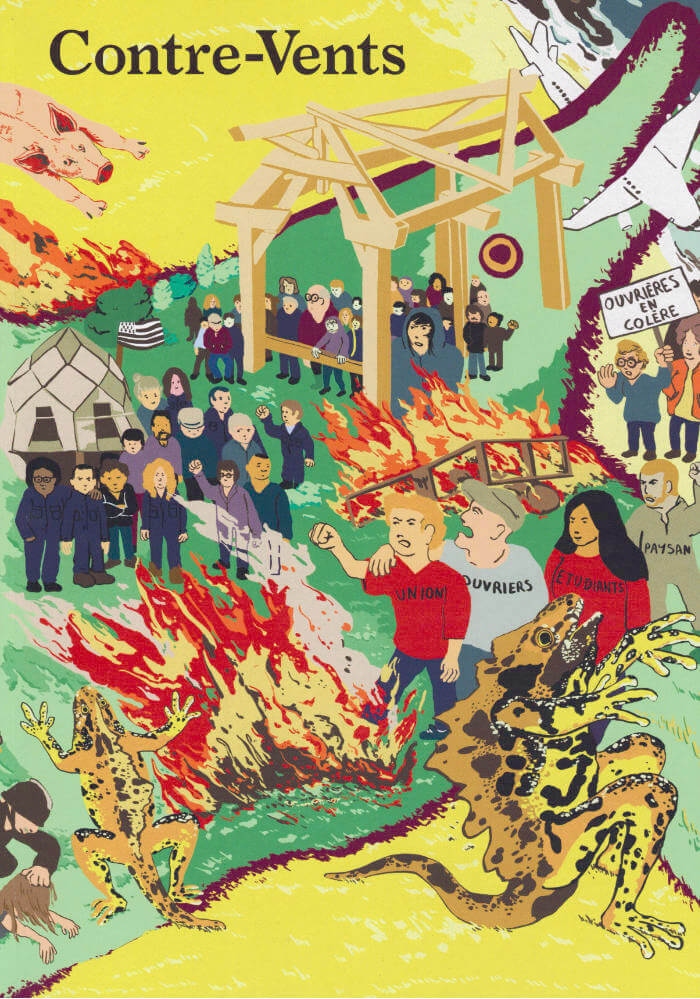
Contre-vents – Colères, espoirs, écologies et politiques dans l'Ouest de la France
François Piron, Guillaume Désanges
A documentary and speculative publication on a genealogy of political, social, ecological and identity-based struggles in the Brittany region and the West of France, from the 1960s to the Zone to Defend of today, based on numerous documents and films made by filmmakers and collectives.
Published following the eponymous exhibition at Grand Café, Saint-Nazaire, in 2019.
Texts by Isabelle Cambourakis, Jade Lindgaard, Élise Roullaud; interviews with Jean-Louis Le Tacon, Patrick Prado, Joseph Potiron, Olivier Tric.
Graphic design: Laure Giletti & Grégory Dapra.
published in September 2021
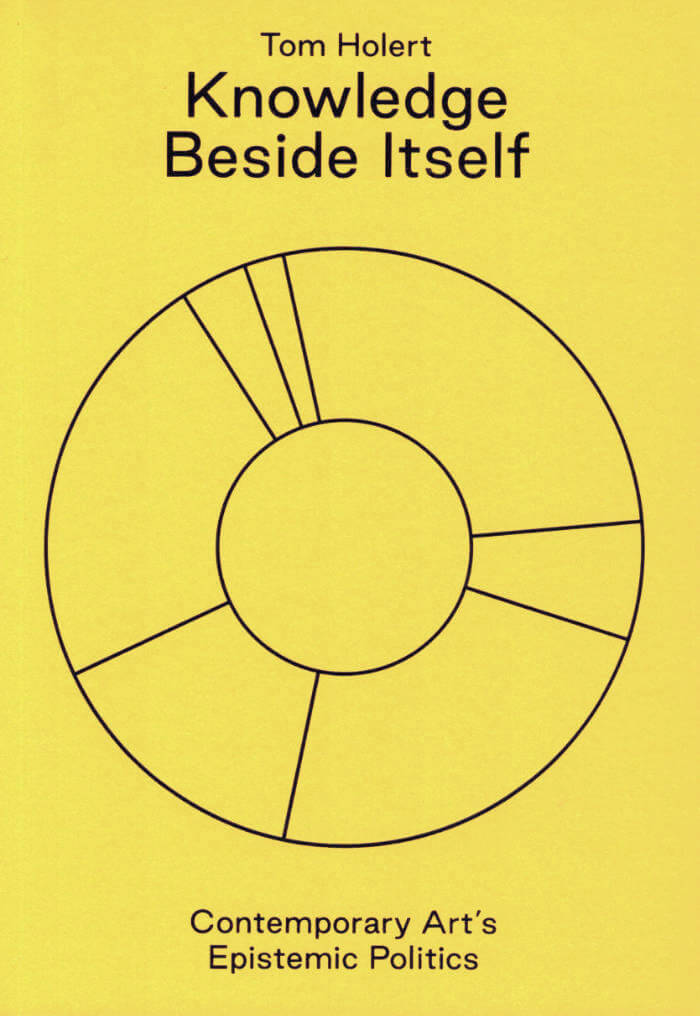
Knowledge Beside Itself – Contemporary Art's Epistemic Politics
A study on the role of research and knowledge production in today's contemporary art, and the growing relevance of art as conduit of knowledge.
What is the role and function of contemporary art in economic and politicalsystems that increasingly manage data and affect? Knowledge Beside Itself delves into the peculiar emphasis placed in recent years, curatorially and institutionally, on notions such as “research” and “knowledge production.” Considered as a specific, expansive mode of the culture industry, contemporary art is viewed here as a strategic bet on the social distinctions and value extractions made possible by claiming a different, novel access to “knowledge.” Contemporary art's various liaisons with the humanities and the social and natural sciences, as well as its practitioners' frequent embeddedness within transdisciplinary research environments and educational settings, have created a sense of epistemo-aesthetic departure, which concurs with the growing relevance of art as conduit or catalyst of knowledge.
Discussing the practice of artists such as Christine Borland, Tony Chakar, Natascha Sadr Haghighian, Adelita Husni-Bey, Jakob Jakobsen, Claire Pentecost, and Pilvi Takala, writer and curator Tom Holert submits the gambit of conceptualizing contemporary art as an agent of epistemic politics to a genealogical analysis of its political-economic underpinnings in these times of cognitive capitalism, machine learning, and a renewed urgency of epistemological disobedience.
Tom Holert is a writer and curator. In 2015 he cofounded the Harun Farocki Institut in Berlin, a platform for research and production departing from the example set by Farocki. With Anselm Franke he curated the 2018 exhibition “Neolithic Childhood: Art in a False Present, c. 1930” at Haus der Kulturen der Welt, Berlin.

Diaries and Dreams – 1976-1979
Second volume of Ion Grigorescu's translated diaries, assembled like a small literary and art-historical sensation of the period between 1976 and 1979.
In recent years, the work of Ion Grigorescu, one of the seminal Eastern European visual artists of his generation, has attracted increasing attention in the West. This volume is the second of his translated diaries—the first from 1970 to 1975 was published in 2014 by Sternberg Press—and is assembled like a small literary and art-historical sensation of the period between 1976 and 1979. It not only counters the facile reading of Grigorescu's practice in the context of Conceptual art and performance art, but provides insight into the artist's multifocal thinking, which incorporates an original critique of modernism, the dystopian effects of an instrumentalized idea of reason and rationality, an analysis of subjectivity, and a penetrating gaze into a dialectic of secrecy and elucidation, of exposure and mystification.
Grigorescu's diaries are written notes revolving around the status of the image and investigate the relation of the body to society and of art to the world through a phenomenological approach. His work proposes a parallel conception of the public made tangible through the eloquence of the body.
In poetic language full of powerfully pictorial metaphors, Grigorescu's reflects on the tension between the realistic effects of the image, the suppression of realism, and the hidden traces the gaze holds through the activities of the increasingly present unconscious of collective memory. Along with the drawings, paintings, photographs, and sketches that accompany them, the diaries serve as an introduction that open the possibility of conceiving Grigorescu's art as a rare evocation of a singular way of thinking: a stance.
Ion Grigorescu (born 1945, lives and works in Bucarest) is one of the most emblematic artistic personalities of the post-war period in Romania, a key figure of conceptual artin Eastern Europe.
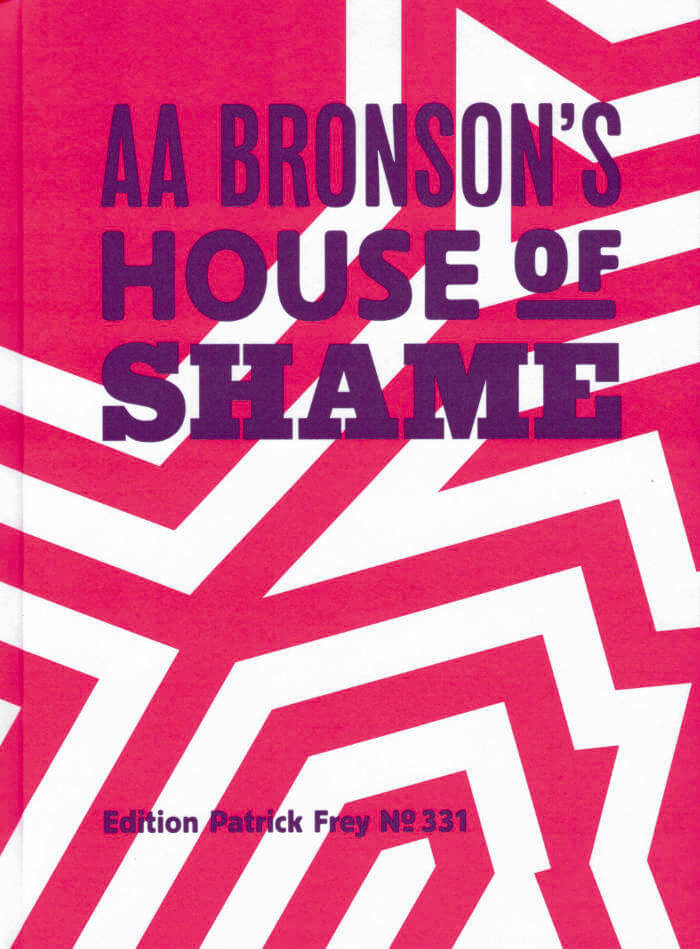
AA Bronson's House of Shame
A look back in text and images at AA Bronson 's (collective) production between 2013 and 2018.
A nocturnal secret ritual performed by two naked men in a hotel room in the Netherlands; a woven tent where the artist dressed as a mage encounters visitors to share their traumas; buttplugs adorned with rooster feathers; a collection of queer zines; anal-sprayed tartan paintings; a zen garden of mugwort. A few of the singular artistic gestures AA Bronson committed in the last few years are united in this book.
After his General Idea partners, Felix Partz and Jorge Zontal, passed away in 1994, AA Bronson had to learn how to keep on living by himself, inventing a personal identity without his former companions, creating a new community of work, friendship and love. These issues have been at the core of his art in the last 25 years. He has developed a work where collaboration with other artists, especially younger queer artists, and creation of a social bond are central.
AA Bronson's House of Shame aims to emphasize this social dimension in his work through an overview of a series of exhibitions he made between 2013 and 2018. These are shows that bring together a community of artists; shows where performances and rituals, often invisible, contribute to the creation of a shared experience; a unique blend of art, friendship, collaboration, spirituality and humour.
The book is in two-parts. An initial monographic section, which includes an essay and an interview with the artist, brings together the works and the exhibitions. In the second, choral part, friends have been invited to bear witness and write a sort of 'journal de bord,' telling the tale of five years of the artist's community life.
With a foreword by Vincent Simon, a text by Paul Clinton, and an interview by Frédéric Bonnet, and contributions from Philip Aarons, Defne Ayas, Elijah Burger, Matthias Herrmann, Richard John Jones, Bradford Kessler, Terence Koh, Sholem Krishtalka, Mark Jan Krayenhoff van de Leur, Gareth Long, Chrysanne Stathacos, Scott Treleaven, and Louwrien Wijers.

Hooker's Green Lake
A series of recent drawings by London-based artist Faye Wei Wei.
Faye Wei Wei (born 1994) is a British artist. She has had solo shows at Project Room, Galerie Kandlhofer, Vienna (2020), Cob Gallery, London (2019), SADE Gallery, Los Angeles (2018), Centre For Chinese Contemporary Art, Manchester (2018)... She graduated from the Slade School of Fine Art in 2016. She lives and works in London.
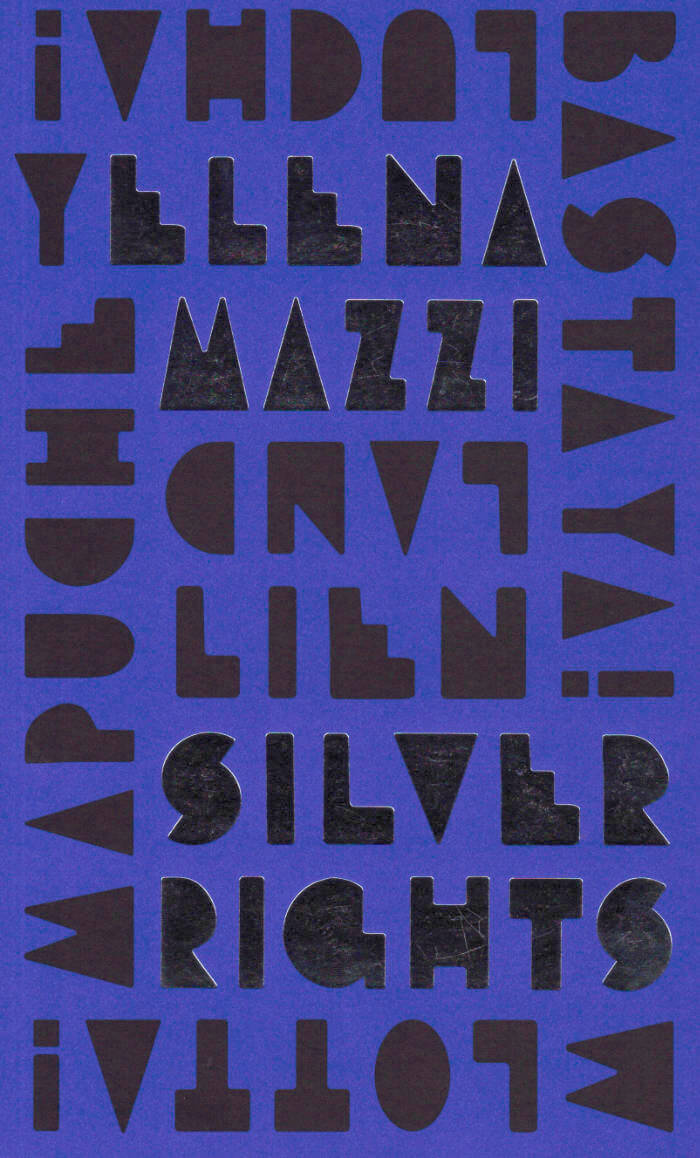
Silver Rights
An in-depth research project by Elena Mazzi in dialogue with the Mapuche spiritual leader, silversmith and activist, Mauro Millán and Argentinean artist, Eduardo Molinari, about the cultural resistance of the Mapuche people to neo-colonialism in Chile.
Curated by Emanuele Guidi, is promoted by ar/ge kunst Bolzano, and supported by the Italian Council (7th Edition, 2019)–Directorate-General for Contemporary Creativity of the Italian Ministry of Culture, Silver Rights focuses on the ancestral bond between the communities and the land (mapu), a bond eroded and denied by colonising forces that have mutated over the centuries to gradually establish themselves in recent decades through neo-extractivist practices; a settlement process resulting from the convergence of investment policies and commercial agreements between South American governments and foreign multinationals, including the Italian Benetton.
More specifically, the project responds to the narrative proposed by the Leleque Museum, an anthropological museum opened in 2000 in the very lands owned by Benetton; an ambiguous operation that dismisses the Mapuche people as an extinct culture rather than one that is alive and active in the disputed territory, 'musealising' their memory and material culture. Elena Mazzi addresses this complexity by engaging in dialogue with the dense network of relations that the Mapuche community has been consciously weaving for years; a way of understanding the art of diplomacy that, on the one hand, implies building and maintaining international relations between different political and cultural subjects, and, on the other, is implemented in their cosmovisions as a form of radical mediation between land, human and 'more than human' beings.
Contributions by Leandro Martínez Depietri, Riccardo Bottazzo, Enrica Camporesi, Emanuele Guidi, Elena Mazzi, Mauro Millán, Eduardo Molinari, Ana Margarita Ramos, Ya Basta! Êdî Bese!
published in September 2021
trilingual edition (English / Spanish / Italian)

Cruiser L'Utopie
First French translation of José Esteban Muñoz's field defining work—an intellectual inspiration for a generation of LGBTQ scholars.
Cruiser l'utopie describes a movement, a drifting advance between theory, philosophy, art criticism and personal narrative. The works cited, narrated, are mixed with family or individual narrative and more academic considerations. This practice of queer theory and aesthetics is part of a new interpretation of hope as perceived by philosopher Ernst Bloch, articulated with black radical thought and the poetic research of authors such as Fred Moten and Eileen Myles.
Muñoz focuses here on the period of the Stonewall revolts (New York, 1969) and analyzes, for example, the works of Frank O'Hara, King Jone/Amiri Baraka, Andy Warhol, Kevin Avance, Samuel R. Delany, Fred Herko, Jill Johnston, Ray Johnson. Queer theory as a study has a new way of researching and writing, a form of hybridity between philosophy and cultural studies. The critique is, as if by anticipation, contained in the counter-normative artistic practice and daily life whose narratives, both subjective and historical, hint at a queer future, a place of transformation and liberation.
The text, translated from English by Alice Wambergue, is accompanied by a preface by Elisabeth Lebovici and a poem by Fred Moten.
José Esteban Muñoz (1967 - 2013) is a queer scholar and art theorist. Author of The Sense of Brown (published posthumously in 2020), Cruising Utopia, the Aftermath and Elsewhere of Queer Advent (2009), and Disidentifications: Queers of Color and the Performance of Politics (1999), he edited the collective works Pop Out: Queer Warhol (1996) and Everynight Life: Culture and Dance in Latin/o America (1997). Muñoz has long taught in the Department of Performance Studies at New York University's Tisch School of the Arts and edited the Sexual Cultures series at New University Press, where he has published works such as Jack Halberstam and Samuel Delany.
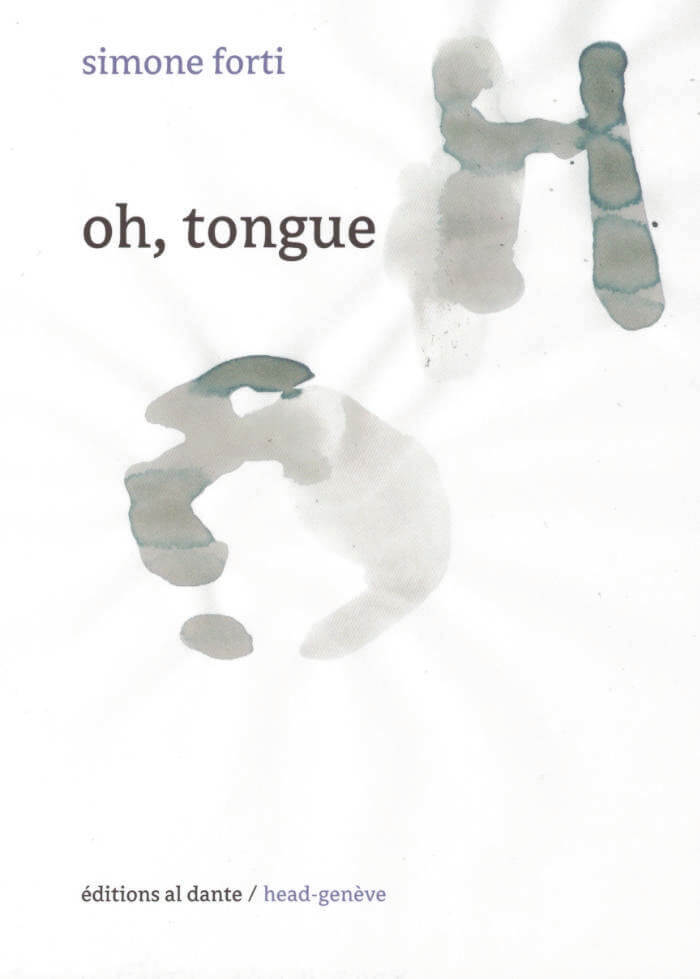
oh, tongue
The notebook of American dancer and choreographer Simone Forti, in which she shares her poetry as well as her thoughts on dance, the body, writing, the state of the world… The publication includes an interview with Forti by Annie Suquet, and an afterword by poet and Fluxus artist Jakson Mac Low.
American dancer and choreographer Simone Forti (born 1935 in Florence, Italy) has been a leading figure in the development of contemporary performance over more than fifty years. Artist, choreographer, dancer, writer, Forti has dedicated herself to the research of a kinesthetic awareness, always engaging with experimentation and improvisation. Investigating the relationship between object and body, through animal studies, news animations and land portraits, she reconfigured the concept of performance and dance.
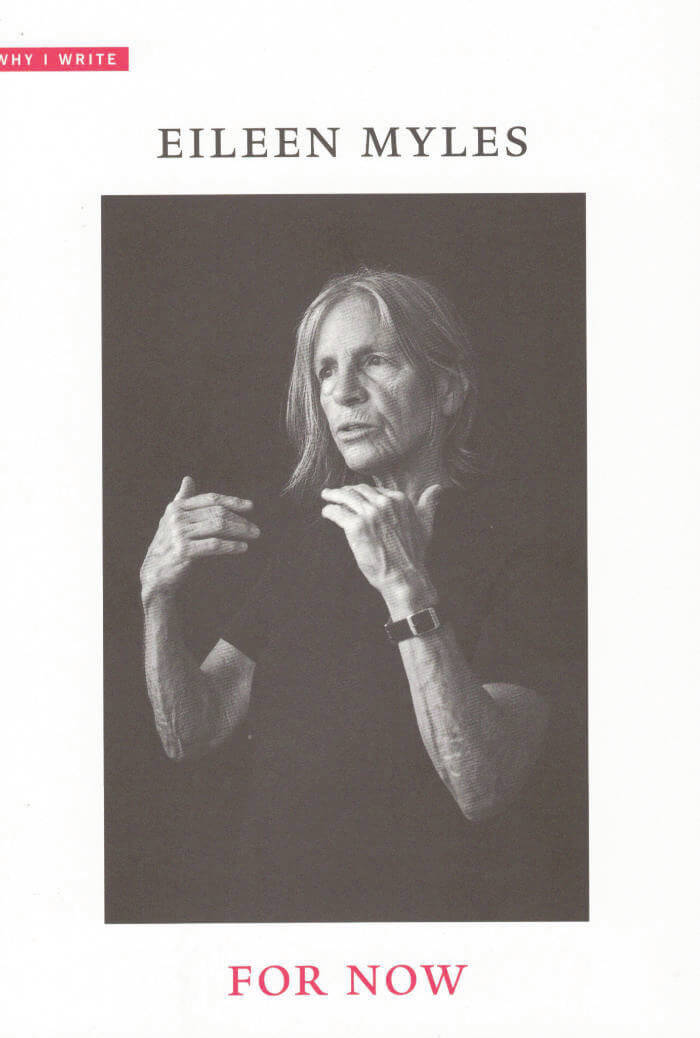
For Now (paperback)
In this third Why I Write volume, Eileen Myles addresses the social, political, and aesthetic conditions that shape their work.
In this raucous meditation, Eileen Myles offers an intimate glimpse into creativity's immediacy. With erudition and wit, Myles recounts their early years as an awakening writer; existential struggles with landlords; storied moments with neighbors, friends, and lovers; and the textures and identities of cities and the country that reveal the nature of writing as presence in time.
For Myles, time's "optic quality" is what enables writing in the first place, as attention, as devotion, as excess. It is this chronologized vision that enables the writer to love the world as it presently is, lending love a linguistic permanence amid social and political systems that threaten to eradicate it. Irreverent, generous, and always insightful, For Now is a candid record of the creative process from one of our most beloved artists.
Paperback edition - 2021.